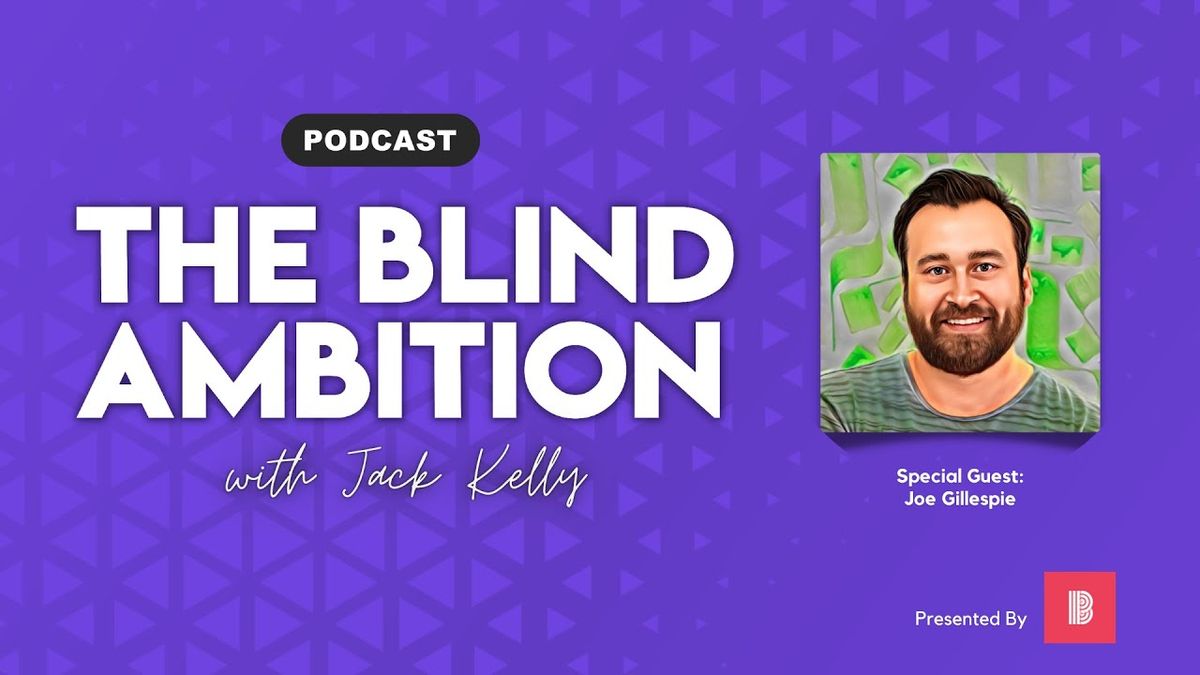Robinhood’s Former Head of Tech Recruiting Joe Gillespie Explains How Engineering Recruiting Really Works

“The Blind Ambition with Jack Kelly” provides a candid look into the top tech companies. Go behind the scenes with tech and workplace leaders and explore engineering and work culture, what it takes to land a role at these companies, and how to build, scale and succeed as an engineer or technologist.
Joe Gillespie is the former head of technical recruiting at Robinhood. He is now an angel investor and startup advisor. He specializes in counseling early and mid-stage startups about recruiting, compensation, benefits, company culture and human resources.
Below are some highlights of the podcast featuring Joe. Listen to “The Blind Ambition with Jack Kelly” above or on your favorite podcast app.
Recruiting: How does it work at a tech company?
A [recruiting] coordinator might, in some large organizations, just do scheduling, whereas a coordinator on the teams that I was working on [was] involved in scheduling, interview training, helping to put together different hiring processes and policies, and delivering them…
[Robinhood’s] sourcers weren’t focused on one role. They would actually go through the prioritized list of roles… working on the most important roles for the company…
I spent a good amount of time working with the engineers on the engineering team on how they could become great recruiters…
They were sourcing some of the lower priority roles that we couldn’t source for and find candidates.
It was really an all-in team. It wasn’t just a recruiting [team], go do this… The company itself was all-in on building a pretty awesome team [company].
Recruiting: How do recruiters find candidates?
Sourcing [starts with] understanding the role… working with the hiring team [and learning]:
- Who do we need to hire?
- What are they going to do?
- What’s their growth path?
- Why would they want to join this team?
- What are the technical challenges?
Then, it’s also about building this model profile.
Instead of saying, we want somebody from a company; we could go in and say, we want folks that have experience working on these types of things, which could be at any company [or] specific teams within a company.
So, for instance, if we were going to look at Microsoft; [it] has a huge employee pool, but we knew that the skill set that we needed was specifically in Azure, we might target just Azure and not really go after Xbox engineers or Office.
What should you consider before looking for a job?
Thinking about where you are in your career and where you want to go in your career can be really helpful before you start randomly searching for a job.
Asking yourself… Am I enjoying my work? Am I happy? Do I like the people that I work with? Is my manager supporting me in the way that I hope to be supported?
Finding a great manager is not always easy, and I think in some ways, it’s worth more than an arbitrary 10% increase in your TC [total compensation] that you might get…
Compensation: What is the value of increasing my total pay?
It’s cool to say, hey, I went from $170,000 to $200,000, but if you actually do the math… it’s still a substantial amount that you’re not getting [because of taxes].
Odds are you’re not going to get a job that’s going to give you a cash differential that’s going to take you from living in a studio with four roommates to getting a house…
Resume: How important is having worked at a big company?
If you don’t have any brand names on your resume, that’s okay.
Some people really want that big brand on there just to check the box and feel like they’re marketable, but I think, especially nowadays… you can make yourself marketable without having a brand name.
Job offer: Why do companies force you to make a decision quickly?
It’s [the] perspective of the leadership that’s putting those [deadlines] in place… I think there’s a benefit to not rushing an offer.
Another reason why they might be putting pressure on [you] is limited headcount, which is something that is potentially very real in today’s market with all the [hiring] freezes and more intentional hiring.
They [might] only have one headcount, but there [are] two or three candidates in [the] queue that they also need to keep on the line in case candidate A declines.
Is it better to work with an in-house recruiter at the company or an external recruiter?
I don’t think it’ll [working with an external recruiter] help much [at] the larger companies, but [it] definitely might be an advantage for the smaller companies…
Why do companies down-level you?
Interview performance is important, but it’s also [the] overall presentation and how you convey yourself.
If you’re an E4, and you’re saying, I’m an E5, a lot of the time; it’s not I can code faster. A lot of the time; it’s I work really well cross-functionally, I can lead in some of the decision-making, or I contributed meaningfully to this technical decision here, and when we were behind schedule… I helped get us out of that by doing ABC thing.
E5 is arguably a terminal level for the majority of people. And that’s okay because it provides a really good life.
But understanding the nuances of what is expected at that next level is going to be really important [to] convey that… to the interviewer and the hiring team… because otherwise, they’re always going to go conservatively.